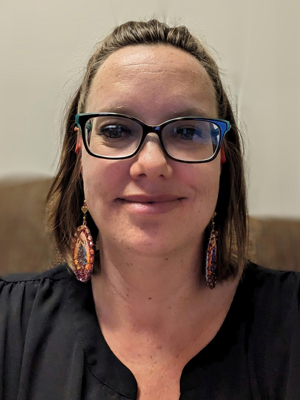Preparing Your Soon-To-Be-Kindergartner to Become a Lifelong Reader
The months and weeks leading up to the start of a student’s kindergarten year is an exciting time for all involved. The new clothes, school supplies, and of course the standout new backpack that will be carried back and forth between home and school are highly anticipated experiences for new students who are eager to begin their first school days. Though families have an idea of what it means to be ready to start with proper supplies, there are sometimes questions about how parents can help their students prepare for the learning. As educators, we have some tips to share to help families get ready for school!
There are many ways in which you as a parent can support your soon-to-be-kindergartener with basic literacy skills. Reading books with your child and teaching them how a book works is an important first step to getting ready for kindergarten and learning to read. Here are some ways in which a parent can foster basic print concepts: have your child practice turning pages while reading a story, find the front and back cover of a book, practice the left to right and up and down orientation of a book, and talk about the difference between an author and illustrator. A general understanding of all of these topics greatly supports students for when they are asked to interact and utilize a book independently.
Now let’s talk about ABCs! Letter naming fluency, or the ability to quickly identify and name letters of the alphabet, is incredibly important for beginning readers. This is the first important step to understanding the sounds and letters in English and getting ready for reading. Here are some ideas of what you can do with your child. First, singing the alphabet song with your child or reading alphabet books. Use alphabet books and guessing games to give your child practice in matching letters and sounds. A good example is the game, "I am thinking of something that starts with /t/." Another idea is to point out words that begin with the same letter as your children's names (for example, John and jump) and then talk about how the beginning sounds of the words are alike. Parents can have their child go on a scavenger hunt within a book to find a letter or series of letters, or they could trace, write, or color specific letters, especially those that are in their names. Any activity that allows a student to make the connection between the letter’s shape and its name is a great way to build the basic understanding that letters are building blocks for words and reading!
Some great ways to practice letter sound knowledge are repeated rhymes done orally, playing matching games where students are asked to match the picture of the letter with its matching spoken sound, or by compiling a list of words that all start with the same initial sound such as dog, dolphin, or donut. In addition to repeatedly hearing the sound being made, students should also see the correct way for the mouth to create the sound. Seeing how a person’s mouth opens, closes, moves, and produces the targeted sounds helps students understand how they can make that same sound using their mouth.
The months before the start of kindergarten can be an incredibly exciting time for families. With all of the firsts that come, there is a great opportunity to practice many of the early reading skills that students will be working on during their first months of kindergarten. Creating a love of reading and sharing stories in the home is a great way to bond with your child and start them on a path to lifelong reading and learning.

Derrick Criner
Derrick is a kindergarten teacher at Cayuse Prairie Elementary School in Kalispell, MT and has taught both kindergarten and second grade for seven years. He has a degree in Elementary Education from Montana State University and is currently finishing his Master’s Degree in Reading from Montana State University Billings.

Kari Dahle-Huff, Ph.D.
Kari has been an educator in Montana and Minnesota for over 20 years in the field of literacy. Currently she teachers at Montana State University Billings in the Reading Master’s Program. Kari specializes in adolescent literacy and rural education. She is also a mom to a 2nd grader and a 4th grader and two dogs.
